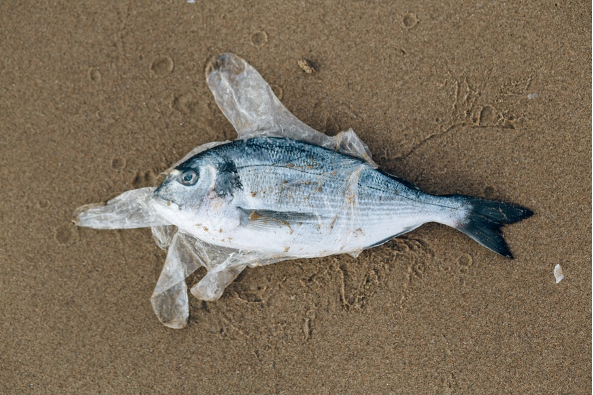A team of researchers from around the world is urging the international community to recognize the full environmental and health threat of plastics and categorize them as persistent, bio-accumulative and toxic (PBT) pollutants.
In a new Viewpoint published in Environmental Science & Technology the researchers argue categorizing plastics, including micro- and nano-sized particles as PBT pollutants would give governments the tools they need to better manage plastic production, use and recycling.
“We need to wake up the world and understand the risks of these pollutants,” says University of British Columbia (UBC) ocean researcher Dr. Juan José Alava, lead author of the paper that includes researchers from Canada, the United States, Europe, South America and Asia.

©Catherine Sheila/Pexels
“We live in the age of plastic — the Plasticene,” says Dr. Alava, principal investigator of the Ocean Pollution Research Unit at UBC’s Institute for the Oceans and Fisheries. “There’s plastic everywhere. It is in the ocean, coastal zones and terrestrial environment. It has been found in animals across the globe, human tissues and organs, and deep in the Mariana Trench — the deepest part of our ocean. They do not degrade easily, so they last for many, many years.”
What makes plastics so popular, durable and efficient is also what makes them a hazard — with high durability, long-half lives and low degradation rates, plastics can take up to 2,500 years to biodegrade or break down. Single-use polyethylene terephthalate (PET) water plastic bottles and high-density polyethylene (HDPE) plastic bottles are key examples. Without change, plastics’ global ecological footprint is reshaping environmental processes and negatively impacting the oceans.

©Nataliya Vaitkevi/Pexels
“It’s hugely important to remember that it’s not just plastics,” emphasizes Dr. Gunilla Öberg, coauthor from UBC’s Institute for Resources, Environment and Sustainability, University of British Columbia. “Many plastic products contain chemicals that in themselves are known to be persistent, bioaccumulate and toxic.”
These plastics, which contain other toxins, can act as a “Trojan Horse” in the ocean.
“Organisms often ingest these plastics by mistake, and thus, become carriers of many other chemicals and microorganisms,” says Dr. Gabriela V. Aguirre-Martínez, coauthor from the Universidad Arturo Prat in Chile.
Even humans ingest these particles through the food we eat. Possible health effect risks are still being studied, but the capacity of plastics to collect in human tissues and organs presents a danger, particularly to members of coastal communities who rely heavily on seafood.
“Plastic particles have been found in the human placenta, in breast milk, lungs and in the colon,” said Alava. “So, the exposure is real. Canada has already banned six types of single-use plastics, but other harmful plastics like PET water plastic bottles need to be eliminated. We need an international effort to really eliminate harmful plastics from the world.”
“This call ahead of the next round of negotiations of the international legally binding instrument for plastic pollution by the United Nations Environment Programme is critical, because access is so restricted that very few from civil society or scientists can be present to highlight that this aspect has not yet been given the necessary attention,” says Dr. Melanie Bergmann, one of the co-authors from the Alfred Wegener Institute Helmholtz Centre for Polar and Marine Research.
Dr. Alava hopes that one day our ecological footprint will show we switched from plastics to more biodegradable substitutes and green, environmentally friendly materials. “We should really think about ways we can be ocean leaders, and really have future generations change their perspective on, and consumption of, plastics.”
Citation:
Alava, J.J., Jahnke, J., Bergmann, M., Aguirre-Martínez, G.V., Bendell, L., Calle, P., Domínguez, G.A., Faustman, E.M., Falman, J., Kazmiruk, T.N., Klasios, N., Maldonado, M.T., McMullen, K., Moreno-Báez, M., Öberg, G., Ota, Y., Price, D., Shim, W.J., Tirapé, A., Vandenberg, J.M, Zoveidadianpour, Z., & Weis, J. (2023). A call to include plastics in the global environment in the class of persistent, bioaccumulative, and toxic (PBT) pollutants. Environmental Science & Technology.
Tags: IOF Research Associates, Juan Jose Alava, OPRU, plastic, pollution, Research, toxins, United Nations (UN)